News
Hunger: Protest In Abuja Over Fuel Crisis, Inflation
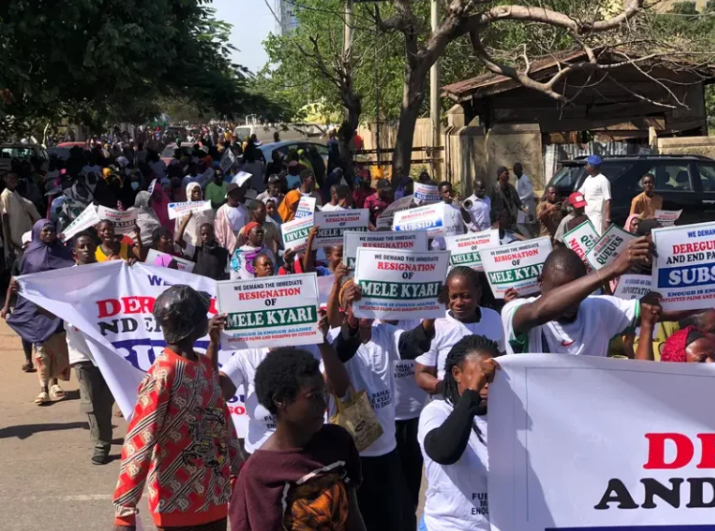
By Kayode Sanni-Arewa
Nigerians gathered in Abuja on Monday, launching a large-scale protest over escalating fuel costs, chronic fuel shortages, and mounting economic hardship.
Led by Abdullahi Bilal of the (Two Million Man March Against Oil Scam Cabal) and Barrister Napoleon Otache and Olayemi Isaac from Citizens and Economic Freedom Rights Activists in Nigeria (CEFRAN), the demonstrators demanded immediate action to address what they described as failed leadership in managing the country’s oil sector.
Central to the protests were grievances over skyrocketing fuel prices and the never-ending queues, which they argued have driven inflation and plunged millions of Nigerians into poverty.
The demonstrators condemned the current fuel subsidy regime, claiming it has only served to enrich a select few while leaving the majority struggling with high prices.
They called for full deregulation in the oil sector to ensure transparency, competition, and fairer fuel pricing.
Protesters also decried the importation of adulterated fuel, which they said is a corrupt practice that harms citizens by damaging vehicles and businesses.
They demanded an immediate halt to these imports and accountability for those responsible, questioning how substandard fuel continues to enter the country despite quality control assurances.
Additionally, the group criticized the unfulfilled promise of the Dangote Refinery to resolve Nigeria’s fuel crisis, expressing frustration over the billions of dollars spent on refinery development and refurbishing existing facilities.
They argued that despite these investments, fuel shortages persist, leaving Nigeria reliant on costly imports even as an oil-producing nation.
Highlighting the impact of the fuel crisis on the economy, protesters cited inflation surpassing 24% and a 200% rise in fuel prices, factors they say are deepening poverty across the country.
They urged President Bola Tinubu to intervene by overhauling leadership in the oil sector, enforcing greater accountability, and putting citizens’ needs first. The protesters vowed to continue mobilizing until their demands for reform and transparency are met.
Speaking to journalists during the mass demonstration, Abdullahi Bilal stated, “The Two Million Man March stands as a united voice for every citizen who has been betrayed by a system that continues to enrich a few at the expense of many.
“Today, we call for the immediate resignation of the current leadership in the country’s oil sector. Their management has failed Nigerians.
Under their watch, we have seen fuel prices skyrocket without consultation or consideration of the devastating impact on the people. We have endured fuel scarcity while substandard, adulterated fuel is imported, causing further hardship.
“We demand the complete removal of the fraudulent fuel subsidy regime that has only served to enrich a select few. Full deregulation is necessary to introduce transparency, competition, and fairness to our oil sector.
We also demand an end to the importation of adulterated fuel into Nigeria. This harmful practice must stop immediately, and those responsible must be held accountable for the damage caused to our vehicles, businesses, and livelihoods.
Nigerians have suffered long enough, wasting hours and days queuing for fuel. We demand a sustainable solution to the fuel scarcity crisis—no more excuses, no more delays. We deserve better.
“We also want to highlight the failure of the much-anticipated refinery. Nigerians were promised that this would solve our fuel crisis, but it has failed to deliver.
“This mismanagement has led to inflation reaching a shocking 24.5% as of November 2024. Fuel prices have increased by over 200%, plunging millions of Nigerians into deeper poverty.
To the government, we say: enough is enough. Nigerians will not stand by while the oil cabal continues to thrive at the expense of our nation’s welfare. We demand accountability, and we demand it now.”
On their part, Barrister Napoleon Otache and Olayemi Isaac, insisted: “This act of economic sabotage has led to endless fuel queues, skyrocketing fuel prices, and unprecedented disruptions in the daily lives of Nigerians.
“We demand an immediate end to fuel queues, transparency, and accountability from all involved parties. We want to know how substandard fuel continues to enter the country despite assurances of quality control.”
News
SAD! Again, Alleged Herdsmen Attack Three Benue Communities

The communities came under simultaneous attacks just a day after the killing of 11 persons at Otobi Community also in Otukpo LGA.
Benue has in the past decade experienced incessant attacks.
Suspected herdsmen have again stepped up violent attacks as no fewer than three communities in the Otukpo Local Government Area (LGA) of Benue State were attacked on Wednesday.
The communities affected during the fresh attacks include Emichi, Odudaje, and Okpamaju all in Otukpo where five persons were killed in February. The communities came under simultaneous attacks just a day after the killing of 11 persons at Otobi Community also in Otukpo LGA.
Local sources confirm that several people may have been feared dead again in the fresh attack.
Wednesday’s attack came hours after Governor Hyacinth Alia confirmed the arrest of three suspected herders in connection with the invasion of Otobi village on Tuesday night.
When contacted, Otukpo LGA Chairman, Maxwell Ogiri, confirmed the attack on the three communities, saying that the attackers stormed the communities at the time when the Commissioner of Police was still at the Ochidoma Palace over the previous day’s attack on Otobi.
He added that three people sustained injury in the attacks on the three communities, leading to women and children abandoning the communities for fear of being killed.
“Only young men were in the communities when the attackers arrived. The prompt response from combined security operatives made the attackers flee and none of them were arrested,” Ogiri stated.
The police spokesperson in the state, Sewuese Anene, was yet to confirm details of the attacks on the three communities.
News
Insecurity: Obi lauds Northern Traditional Ruler’s bold steps
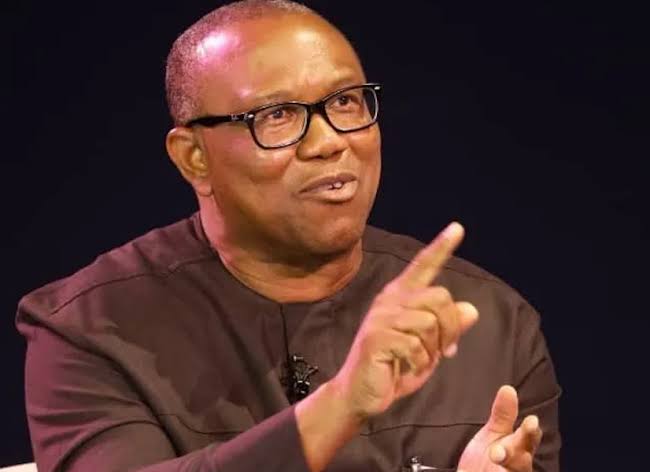
The 2023 Presidential Candidate of the Labour Party, Peter Obi has hailed the Northern Traditional Rulers for taking bold steps on the menacing security challenges in the region and in the country.
Obi, who was reacting to the ‘Enough is Enough’ declaration of the royal fathers on the security situation, said that their courageous steps are needed to find a lasting solution to the menace.
Writing on his X handle, Obi said “I would like to sincerely thank the Northern Traditional Rulers for their courageous and timely emergency declaration of the security situation in the region. I cannot agree less with them that “Enough is Enough” regarding the persistent killings and insecurity plaguing our nation.
“Their collective voice, as reported, underscores the urgent need for decisive action to protect lives and restore peace in our communities.
“I urge governments at all levels to work closely with these royal fathers who are closest to the people at the grassroots. Their commitment to addressing these challenges and offering counsel to regional governors reflects true leadership and a deep concern for the well-being of their communities.
“The stance of the Northern Traditional Rulers serves as a clarion call to all stakeholders. We must unite, irrespective of political affiliations, to implement lasting solutions that address the root causes of our nation’s challenges.
“Let us work together to build a Nigeria where every citizen feels safe, valued, and empowered.
News
Snub story on removal of Rivers Sole Administrator, it’s FAKE-Chief Registrar
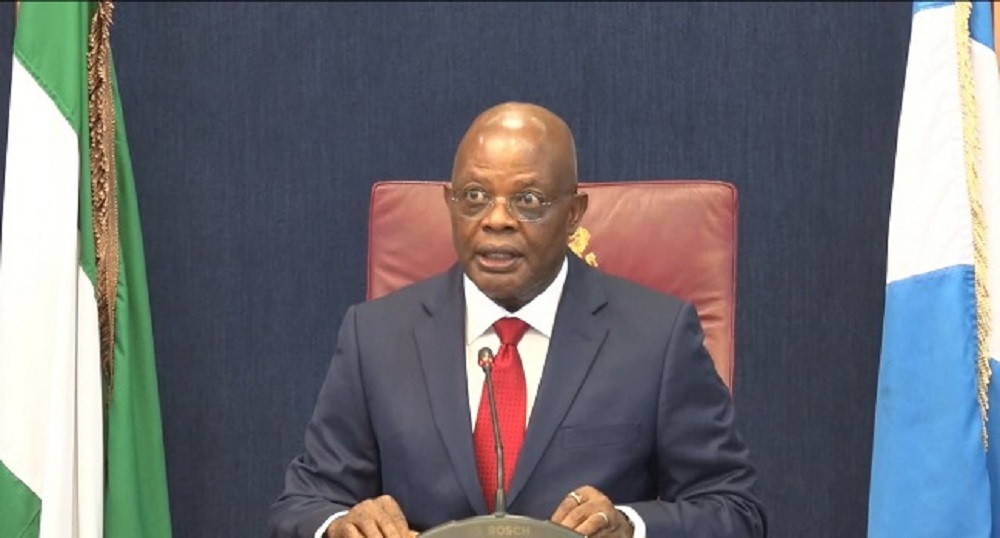
By Emmanuel Agaji
The Rivers State High Court Chief Registrar, David D Thua-Maduenyi has rubbished speculations suggesting that Rivers Sole Administrator has been removed by the state’s High Court.
Naijablitznews reports this was contained in a statement personally signed by the Chief Registrar saying:
“My attention has been drawn to an online news report with the caption “BREAKING
NEWS: Governor Sim Fubara secures Court victory over Wike and Tinubu –
Federal High Court Orders Sole Administrator to vacate Government House”,
authored by one Joy Musa published by 247 ureports on Tuesday, 15th April, 2025.
“Ordinarily, I would not have bothered myself with any refutal, but for the
mischievous mention of the name of Hon. Justice Boma Diepriye which appears
synonymous with Hon. Justice Boma Diepiri of the Rivers State High Court in
paragraph 4 of the report thus:
“Justice Boma Diepriye, who presided over the case, ruled that the
appointment of a sole administrator to oversee the affairs of a state with
a sitting, democratically elected governor is “illegal, null and void…”
“In view of the above, I wish to state as follows:
Hon. Justice Boma Diepiri is not a Judge of the Federal High Court but a
Judge of the Rivers State High Court, and is already on Easter Vacation,
which commenced on Monday, 14th April, 2025.
“For the period of the Easter Vacation, only the vacation Judge is sitting:
and Hon. Justice Boma Diepiri is not the Vacation Judge.
“The mention of the name of Hon. Justice Boma Diepriye which is similar
with Hon. Justice Boma Diepiri of the Rivers State High Court is not only
false, but misleading, and clearly exposes the crass ignorance of the
reporter; as the Federal High Court is different from Rivers State High
Court.
“No State High Court gave any order(s) relating to or concerning the
subject matter as captioned in the online news.
“It is regrettable that some bloggers and online news reporters have traded
professionalism on the altar of pecuniary gains they seek to derive from traffic on
their social media handle and web pages.
“Henceforth, the Judiciary enjoins the general public to seek clarification on any
news report concerning the Court and official of the Court before publication.
“The general public is advised to clearly ignore the false and misleading publication.
-
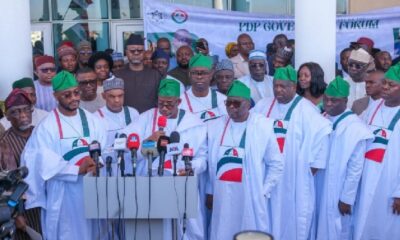
 News20 hours ago
News20 hours agoPDP governors declare support for Tinubu
-

 News24 hours ago
News24 hours agoEx-finance minister rearrested in new fraud probe
-
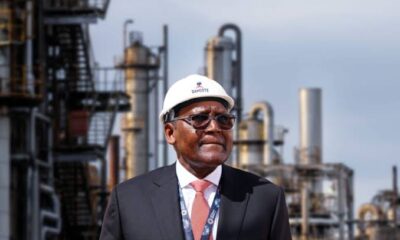
 News21 hours ago
News21 hours agoHope for Nigerians as Dangote refinery slashes petrol price again
-

 News23 hours ago
News23 hours agoFubara: How can I forgive somebody who never requested for it– Wike
-

 News21 hours ago
News21 hours agoRivers Emergency Rule: Abbas inaugurates 21-member panel
-
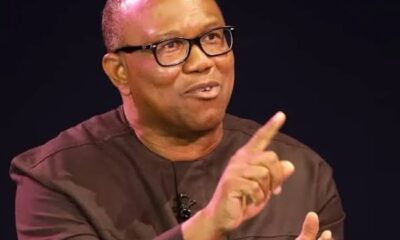
 News23 hours ago
News23 hours agoPeter Obi asks president Tinubu to suspend France trip
-

 News20 hours ago
News20 hours agoN1.3trn CBEX Scam: EFCC caution Nigerians against Ponzi Schemes
-

 News7 hours ago
News7 hours agoFG expresses sympathy for CBEX victims, urges a united effort to combat Ponzi schemes





